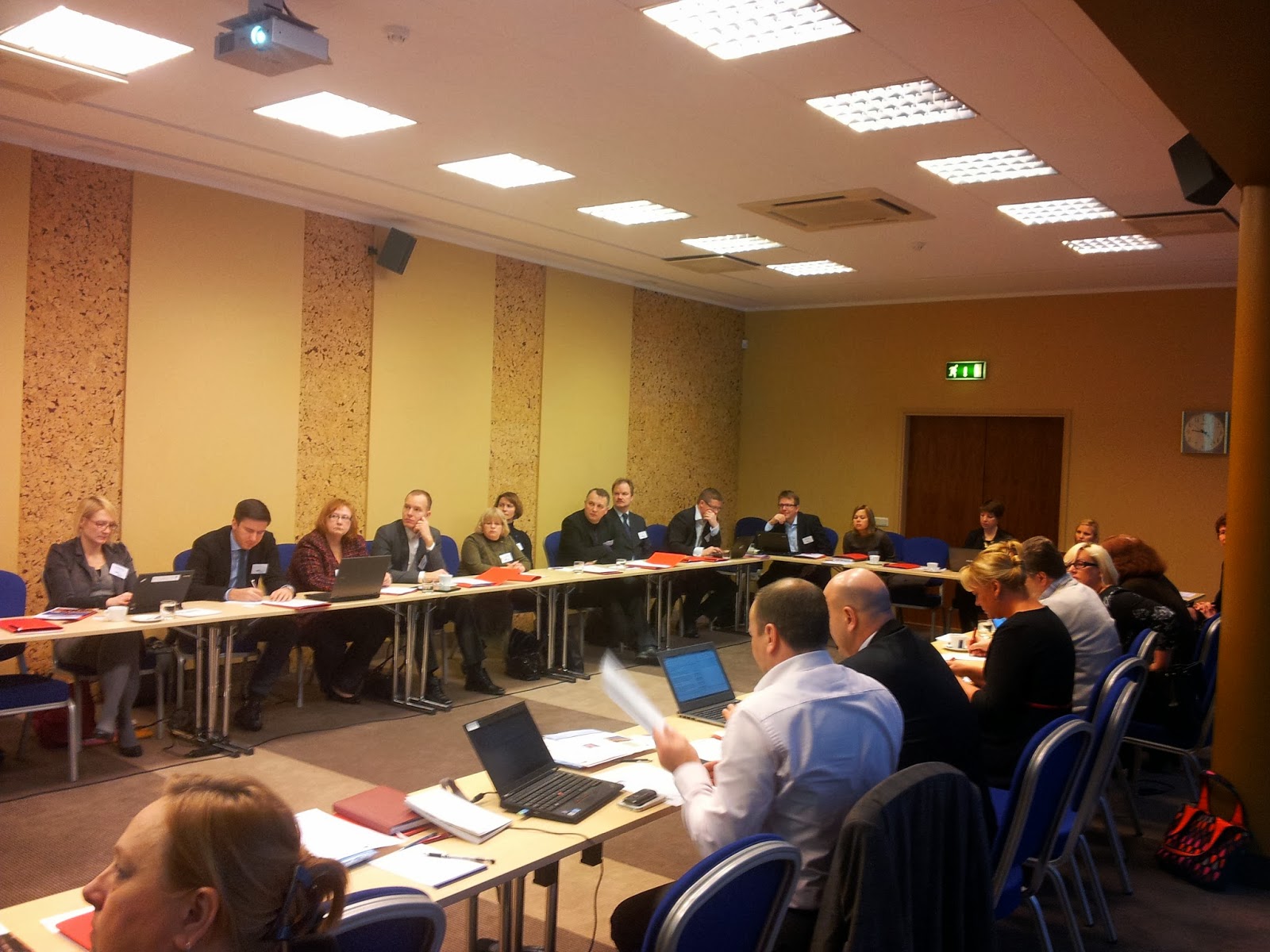BSR Programme SEED Money Facility-funded project “Baltic Sea Region Urban Forum for
Smart Cities (BUF)” held its concept development workshop on 19-20 January 2014 in Tartu,
Estonia. Event gathered around 40
participants representing regional cooperation organizations, municipalities,
businesses and research institutions from Estonia, Latvia, Finland, Denmark and
Sweden - all united in their interest of pan-Baltic cooperation and determination
to develop a platform for exchanging city-oriented smart solutions.
 |
| Andres Jaadla from Rakvere presenting Smart House initiative |
First half of the workshop presented case studies of
smart technologies from which Turku, Estonia and Öresund region have benefited.
City of Turku began its cooperation with Siemens in 2012, focusing on mobility and building and energy
effective solutions. Projects of this strategic partnership include the evaluation
report for the light rail network planned for Turku, analysis for sustainable
city districts, and developing future business models enabled by the municipality.
Tartu based company Positium uses mobile positioning to conduct studies about
movement patterns in Estonia, including commuting and domestic tourism.
Outcomes of the studies can influence, for example, future solutions for
administrative division and revision of transport connection routes.
Öresund Smart City Hub manages cooperation between the Swedish province of Scania (Skåne) and
Denmark’s major island Zealand in several areas, most prominently climate
issues, accessibility and mobility and development and innovation.
After a taste of tangible achievements of their
colleagues, participants of the workshop were invited to the joint discussion
about concepts behind the Baltic Urban Forum and format which it would assume
in the future. Most popular areas in need of “smart” solutions appeared to be
energy efficiency, mobility and health and social issues. Also, participants
agreed that carrying out an annual event is solely not enough – it could be
supplemented with, for instance, complex surveying of municipal needs and
an established mentoring system.
 |
| Agreeing on the results of joint discussion |
BUF project consortium agreed on the next steps in
development and elaboration of the Baltic Sea Region Urban Forum. These would
be a supplementary working group meeting in Copenhagen (March), followed up by
the two workshops in connection to the Energy Cities' Annual Rendezvous in Riga (April) and to the Seminar of the UBC Commissions in Örebro (May). The concept of the Baltic Sea Region Urban Forum
for Smart Cities will be ready and presented in
the Baltic Development Forum Summit
in June 2014 in Turku, Finland.
BUF is a project initiative taken jointly by the UBC Board, Baltic Development Forum and the City of Turku, in order to prepare a concept for a “Baltic Sea
Region Urban Forum for Smart Cities”.
Text and photos: Olena Zinchuk
